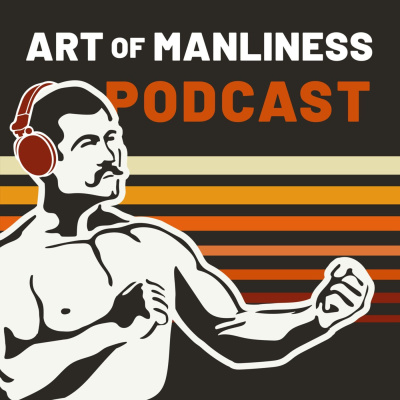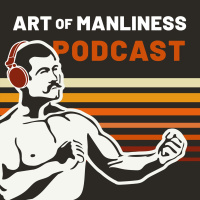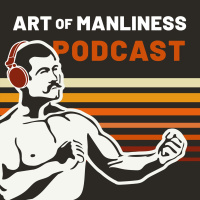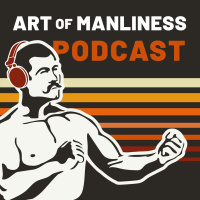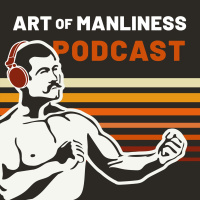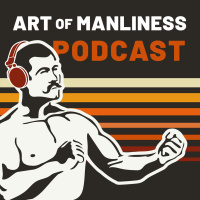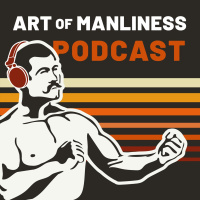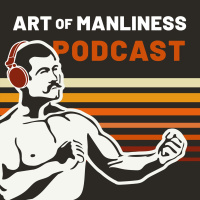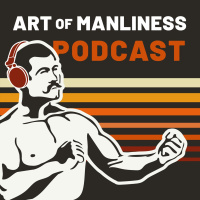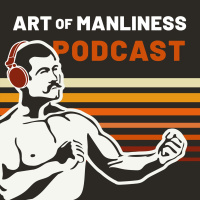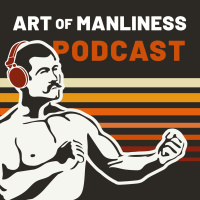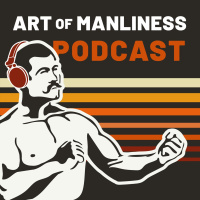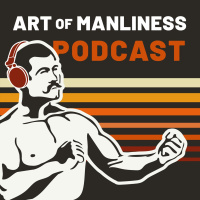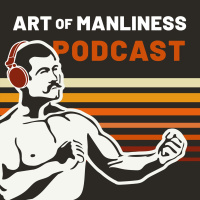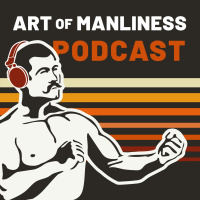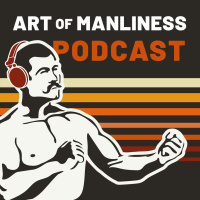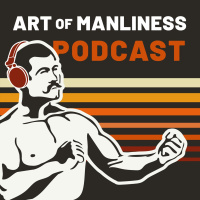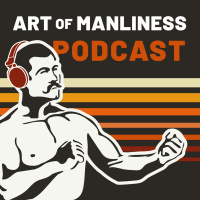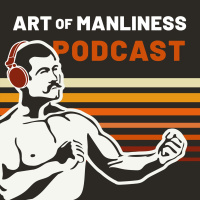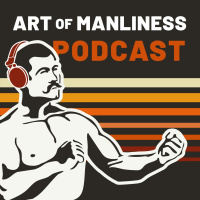Sinopsis
Podcast by The Art of Manliness
Episodios
-
#597: A Survival Expert's Guide to Bugging-In
30/03/2020 Duración: 47minThe coronavirus pandemic has forced tens of millions of people to stay home due to shelter-in-place orders and even lockdowns. While supplies of food, water, and other essentials have largely continued undisrupted, if one or more of these services were cut off, what would be the best way to prepare for that kind of emergency? To answer this question, I talk to friend of AoM and survival expert, Creek Stewart. Creek has dedicated his life to mastering all things survival, spending thousands of hours in the field, authoring numerous articles and books, teaching courses to others, and hosting television shows for the Weather Channel like SOS: How to Survive. Today, Creek and I talk about what we can learn from the current pandemic about how to shelter-in-place or bug-in, and how to be prepared if this crisis worsens in severity, or we're one day hit with a more dire disaster. We dive into the different bug-in categories you need to consider, beginning with how much food and water you need for a long-term bug-in
-
#596: The Mystery, Science, and Life-Changing Power of the Hot Hand
25/03/2020 Duración: 36minHave you ever had a period in your athletic or professional career where you kind of felt like you were on fire? Maybe you made a whole streak of consecutive shots in a game, or executed one good idea after another at work. In his book, The Hot Hand: The Mystery and Science of Streaks, my guest today explores why success sometimes seems to arrive in clusters like this. His name is Ben Cohen and he's a sports writer for The Wall Street Journal. Ben and I begin our conversation with an explanation of what it means to have a hot hand, and how this phenomenon has often been studied in basketball, but can be seen in a wide range of areas, including the film career of Rob Reiner. We then discuss what may cause winning streaks, whether or not they can be induced, and what Stephen Curry does when he starts feeling hot in a game. We also talk about what the video game NBA Jam can tell us about the psychology of the hot hand. We then dig into what the academic research has found on whether the hot hand truly exists or
-
#595: Everything You Need to Know About Creating a Home Gym
23/03/2020 Duración: 51minIn a time when the world is dealing with a pandemic, and many commercial gyms have shut down, interest in creating a gym at home has swelled. Whether working out at home is something you've been mulling over for a long time, or that you've just started to think about, this show will help you decide if and how to move forward on the idea. My guest today is Cooper Mitchell, the founder of garagegymreviews.com, a website and social media communitydedicated to reviewing personal gym equipment and inspiring people to work out at home. Coop and I begin our conversation unpacking the many benefits of having a home gym, and also talk about one of its potential downsides. He then explains why it's generally a big mistake to go all-in, all at once on a home gym, and how he recommends making the transition instead. We then get into exactly what the start-up costs for a home gym are, and how it's likely less than you think. Coop shares specifics on what he thinks are the essential pieces of equipment to get, the cost bre
-
#594: How Churchill (and London) Survived the Blitz of 1940
18/03/2020 Duración: 47minA few months after Winston Churchill took office as prime minister, the German military began an eight month-long bombing campaign on the United Kingdom which became known as the Blitz. The bombing, which lasted for 57 consecutive days and nights, killed 45,000 Britons. What was life like for the people who experienced the Blitz? My guest today zoomed in on this question by looking at the lives of Winston Churchill and his inner circle during this precarious year of the war. His name is Erik Larson, and in his latest book The Splendid and the Vile, he shows readers how the Blitz could be absolutely terrifying, unexpectedly normal, and strangely beautiful at the same time, and does so by profiling how Churchill, as well as his family members and advisers, handled both the unexpected horrors of war and the predictable pickles of interpersonal drama. We begin our conversation discussing the extent of the Blitz, and then spend the rest of our conversation discussing key members in what Churchill called his "sacr
-
#593: All You Have to Do Is Ask
16/03/2020 Duración: 34minAre you feeling overwhelmed at work? Trying to find a job, but can't seem to get your foot in the door? Have you been knocking your head against a problem over and over again, but haven't made any headway on it? My guest today says you can solve most of these issues by simply asking for help. His name is Wayne Baker, he's a sociologist, consultant, and the author of the book All You Have to Do Is Ask: How to Master the Most Important Skill for Success. We begin our conversation discussing what the research says are the benefits of asking for help and why people are nevertheless so reluctant to do it. Wayne then provides insights on how to overcome those obstacles in asking for help, the best way to formulate an ask so that it actually gets a response, and how to handle rejection. We then turn to Wayne's research on how organizations can benefit from creating a culture of help-seeking and what you can do within the organizations you belong to to foster such a culture. Get the show notes at aom.is/ask.See Priv
-
#592: Being a Man in the Lousy Modern World
11/03/2020 Duración: 43minEmerson famously said "society everywhere is in conspiracy against the manhood of every one of its members." My guest today says things have gotten a lot worse since Emerson uttered those words over a century and a half ago. His name is Robert Twigger. We last had him on the show to discuss his book Micromastery. Today we discuss a book he wrote 20 years ago called Being a Man in the Lousy Modern World. We begin our conversation discussing how the modern world infantilizes men so they're easier to control, and whether Robert thinks things have changed since he initially published the book. We then dig into the four factors Robert says need to be in place for a man to feel like a man, and why experiencing these qualities has become harder to do in the present age. We then discuss what Robert did to counter the currents of modern malaise like hiking the Pyrenees mountains and learning a martial art, and whether doing those things actually made him feel manlier. We end our conversation with what men can do to s
-
#591: Solve Problems Before They Become Problems
09/03/2020 Duración: 57minSo often in life, we get stuck in a cycle of reaction. We tackle the most urgent tasks. We deal with emergencies. We put out fires. We intuitively know we'd be better off if we figured out a way to be more proactive rather than reactive, thereby preventing fires from starting in the first place, but we can't seem to switch our approach. My guest today explores why that is and what we can do to start solving the problems of business, life, and society before they become problems. His name is Dan Heath and today we talk about his latest book, Upstream: The Quest to Solve Problems Before They Happen. We begin our conversation discussing the issues that keep us from nipping problems in the bud, including problem blindness, lack of ownership, and "tunneling." Along the way Dan shares insights into how to overcome those roadblocks. We then shift gears and explore how to find the best upstream solutions to problems, which requires getting as close as possible to the problem, while also being able to survey the sys
-
#590: The Creation of Sherlock Holmes
04/03/2020 Duración: 42minSherlock Holmes is one of the most widely recognized figures of literature and pop culture. But how did the creator of Sherlock Holmes, Sir Arthur Conan Doyle, come up with a character who has become the universal archetype of the independent detective? In his book, Arthur and Sherlock: Conan Doyle and the Creation of Holmes, my guest today explores the biography of the fictional detective by looking at the life of the real-world author. His name is Michael Sims and we begin our conversation with the early life of Conan Doyle and his experience in medical school studying under a renowned diagnostician who helped inspire the character of Sherlock Holmes. Michael then walks us through the cultural world of Victorian England and how it was the perfect environment for a character like Holmes to be birthed. He shows how writers like Charles Dickens and Edgar Allan Poe laid the groundwork for detective fiction, how the Sherlock stories differed from theirs, and how they were initially received. We then delve into
-
#589: How Exercise Helps Us Find Happiness, Hope, Connection, and Courage
02/03/2020 Duración: 58minYou know how good moving your body is for your physical health. You probably have a vague sense that it's good for your mental health too. But you likely don't realize just how powerful movement truly is for your mind, and that it even affects your sense of hope, courage, connection, and identity. My guest today explores these lesser-appreciated impacts of physical activity in her new book, The Joy of Movement. Her name is Kelly McGonigal and she's a research psychologist and lecturer at Stanford University. Kelly and I begin our discussion with the idea of the runner's high, and whether you can get it from doing forms of exercise other than running. We then discuss how exercise can become powerfully addictive, and yet be a uniquely healthy form of addiction that improves instead of destroys mental health. We then discuss the way that moving our bodies with others can generate collective joy, as well as a muscular bonding that makes a group feel bigger and stronger. We also get into what elements go into an i
-
#588: The Audacious Command of Alexander the Great
26/02/2020 Duración: 52minAlexander the Great became king of Macedonia at age 19. By age 30 he controlled an empire that spanned from Greece to India. In the two thousand years after his early death, his influence has persisted. Military leaders from Caesar to Napoleon studied his campaigns and imitated his strategies and tactics, and without Alexander, the influence of Greek culture on the world wouldn't have been the same. My guest today has written a very readable, yet academically authoritative biography of this legendary king, commander, and conqueror. His name is Philip Freeman, and he's a classics professor and the author of Alexander the Great. Today on the show, Philip takes us on an engaging tour of Alexander's life, beginning with the myths surrounding his birth, and his education under the great philosopher Aristotle. Philip then explains the cloak and dagger intrigue of Macedonian politics and why Alexander's father was assassinated. We then dig into Alexander's political reign and military command and highlight the most
-
#587: How to Get More Pleasure and Fulfillment Out of Your Reading
24/02/2020 Duración: 52minDo you have a goal of reading more, but any time you start working on that goal, it feels like a chore? The equivalent of eating your broccoli? My guest today argues that the problem is likely due to the fact that you're trying to read what you think you should be reading, instead of reading what you actually enjoy. His name is Alan Jacobs. He's a professor of literature and the author of The Pleasures of Reading in an Age of Distraction. At the start of our conversation Alan offers a critique of a certain approach to reading the so-called "Great Books," and makes an argument for choosing what you read based on Whim, with a capital W, rather than following any kind of list. He then makes the case for following that Whim into reading not only the books of your favorite authors, but the books your favorite authors read, which can actually lead you back to the Great Books, but in a way that will allow you to enjoy and appreciate them more. Alan makes the case as well for the value of re-reading books. Alan and
-
#586: The Story of the Skiing Soldiers of WWII
19/02/2020 Duración: 38minIn the winter of 1940, a group of civilian skiers was sitting by a fire in a ski lodge in Vermont shooting the breeze about how the US Army needed an alpine division like the militaries in Europe had. That conversation transformed into a concerted effort to turn their idea into a reality, and the creation of the Army's 10th Mountain Division -- a unit which would play a vital role fighting in the mountains of Italy during World War II. My guest today has written a book on these skiing, snow-born soldiers. His name is Maurice Isserman, and he's a professor of history and the author of The Winter Army: The World War II Odyssey of the 10th Mountain Division, America's Elite Alpine Warriors. We begin our conversation discussing why the US Army didn't have an alpine division before WWII and how a group of civilian skiers led by a man named Minnie Dole spearheaded the movement to create one. Maurice then shares why the 10th Mountain Division heavily recruited from top tier colleges, and how the unusual make-up of t
-
#585: Inflammation, Saunas, and the New Science of Depression
17/02/2020 Duración: 01h21sI've dealt with depression in my life. My body temperature also seems to run hot; in fact my wife Kate has nicknamed me "the baked potato." My guest today says that there may be a connection between those two things. His name is Charles Raison, he's a psychiatrist, professor of psychiatry, and the co-author of The New Mind-Body Science of Depression. We begin our conversation with why Charles thinks it's important to ask the question, "Does Major Depression even exist?" and what we do and don't know about what causes depression. We then turn to the emerging theory that physical inflammation may play a role in depression; Charles describes what inflammation is, and why the body may become inflamed and physically hotter not only in response to physical illness, but psychological stress as well. We then discuss the paradoxical finding that short-term exposure to inflammation in the form of exercise or sitting in a sauna can reduce long-term inflammation, and how hot you probably have to get in a sauna for it to
-
#584: How to Avoid Falling in Love With the Wrong Person
12/02/2020 Duración: 59minWhy do people sometimes fall in love with someone who is all kinds of wrong for them? Their friends and family see lots of red flags about their partner, but they themselves miss these warnings entirely, sometimes to catastrophic consequences. My guest today argues that these kinds of errors in relational decision-making happen when someone lets his heart rule without also heeding his head. His name is John Van Epp, and he's a therapist and the author of the book How to Avoid Falling in Love with a Jerk. We begin our conversation discussing what society's default template for creating a successful relationship looks like, and how it leads people astray. John then defines what makes a jerk, a jerk, and the signs that you're dating a jerk. He then explains why it is that people so often miss these signs, by using a model of how attachment develops in a relationship; I think this model is super useful in understanding relational dynamics and you don't want to miss it. We then discuss why men need to do a better
-
#583: How to Stay Mentally Sharp and Fulfilled as You Age
10/02/2020 Duración: 39minEveryone gets old. But not everyone experiences old age the same way. Some folks spend the last few decades of their life sick, sad, and stagnating, while others stay sharp and find great satisfaction in the twilight years of life. My guest today is a neuroscientist who has dug into the research on what individuals can do to increase their chances of achieving the latter outcome instead of the former. His name Daniel Levitin and today we discuss his latest book Successful Aging: A Neuroscientist Explores the Power and Potential of Our Lives. We begin our conversation discussing the societal narratives we have about old age that don't always hold true. We then dig into the fact that while the brain slows in some ways with age, it gets sharper in other ways. Daniel shares the personality trait that's the biggest predictor of a successful elderhood, and the recognizable-yet-surprising reason the idea that memory declines with age is overblown. We also talk about what really works for preserving your memory an
-
#582: Essential Lessons From Great Wartime Leaders
05/02/2020 Duración: 41minWar puts leadership to the ultimate test. During a war, a leader must make life or death decisions and be held accountable for those decisions while grappling not only with military strategy, but also political, economic, and domestic dynamics. My guest explores the lives of nine wartime leaders and what we can learn from them in his latest book: Leadership in War: Essential Lessons From Those Who Made History. His name is Andrew Roberts, and we last had him on the show to talk about his biography of Winston Churchill. We begin today's conversation discussing how Andrew decided on the leaders to highlight in his book, how he defines a "great" leader, and how that definition includes nefarious dictators like Hitler and Stalin. We then take a look at the leadership style of Napoleon, as well as that of World War II leaders like Churchill, Eisenhower, and Marshall. We also unpack how Hitler and Stalin gained power, despite having serious character defects. We end our conversation with the qualities this varied s
-
#581: The Tiny Habits That Change Everything
03/02/2020 Duración: 44minWe're a month into the new year now. How are you doing on your resolutions? Have you already fallen off the wagon? Maybe the goal you set for yourself was just too big to successfully tackle. You need to think smaller. Tiny, even. That's the argument my guest makes. His name is Dr. BJ Fogg, and he's the founder and director of Stanford's Behavior Design Lab, as well as the author of the new book Tiny Habits: The Small Changes That Change Everything. Today on the show, BJ walks us through the three components that drive our behavior, including the simple yet overlooked relationship between motivation and ability. He then explains how to build habits that feel easier and require lower levels of motivation by picking behaviors that are good matches for you and breaking them down into smaller parts. We also talk about the need to tie your habits to turnkey prompts, the importance of celebrating your successes, no matter how small, and the way tiny habits can lead to bigger changes. We end our conversation with wh
-
#580: Why People Do (Or Don't) Listen to You
29/01/2020 Duración: 54minSome cultural observers have posited that we're moving from an information economy to a reputation economy. There's so much information to sort through, that figuring out which bits to pay attention to has come to increasingly rely on what we think of the person delivering them. We privilege the messenger over the message. But how exactly do we decide which messengers to listen to or not? What draws us to particular messengers and causes us to tune out others? My guest has spent his career researching, lecturing, and writing about the answers to these questions and he shares his insights in a new book. His name is Steve Martin and he's the author of Messengers: Who We Listen To, Who We Don't, and Why. In the first half of our conversation, we unpack why it is that the messenger matters so much, and how people can manipulate these factors in unethical ways to peddle messages and influence that may not be credible. We then shift into how you can also leverage these neutral tools in ethical ways to make yourself
-
#579: Jack London's Literary Code
27/01/2020 Duración: 01h05minThe literature of Jack London has long been given the short shrift by scholars. They say he wrote some good dog stories for boys, but beyond that didn't showcase any literary genius or high-level craftsmanship. Well, my guest today begs to differ with this assessment. His name is Earle Labor. He's the preeminent Jack London scholar and 91 years young. I've had Earle on the podcast two previous times: the first to discuss his landmark Jack London biography, and the second to discuss his own memoir, The Far Music. For this episode, I drove down to Earle's home in Shreveport, Louisiana to talk to Earle about the overlooked literary genius of Jack London and the big themes that London wrote about in his novels and short stories. We begin our discussion with Earle's story of how he became a Jack London scholar and why London's work was historically neglected by academics. We then dig into London's literary themes by first discussing how he used the Klondike as a symbolic proving ground for men and how success in
-
#578: Figuring Out If You Should Change Careers (And How to Do It)
22/01/2020 Duración: 46minHave you been feeling doubts about your career recently, or perhaps for quite some time? Maybe you're not sure if you're in the right job, or even in the right field, and you can't figure out if you should try to keep making your current position work, or jump ship to something else. Then you'll likely recognize yourself in the stages of career transition my guest will describe. His name is Joseph Liu. He's a consultant, coach, and speaker who helps people navigate the challenges of switching careers. In his work, he's seen that there's a recurring pattern individuals follow when thinking about and making this weighty decision, which he calls the "7 Stages of Career Change." Today on the show, Joseph walks us through these stages, which begin with Doubt and Dismay and end with Reflection and Relaunch. With each stage, Joseph explains what typically goes through people's minds, common mistakes that are made, and the best actions to take, which sometimes involves transitioning out of your current career, and so
